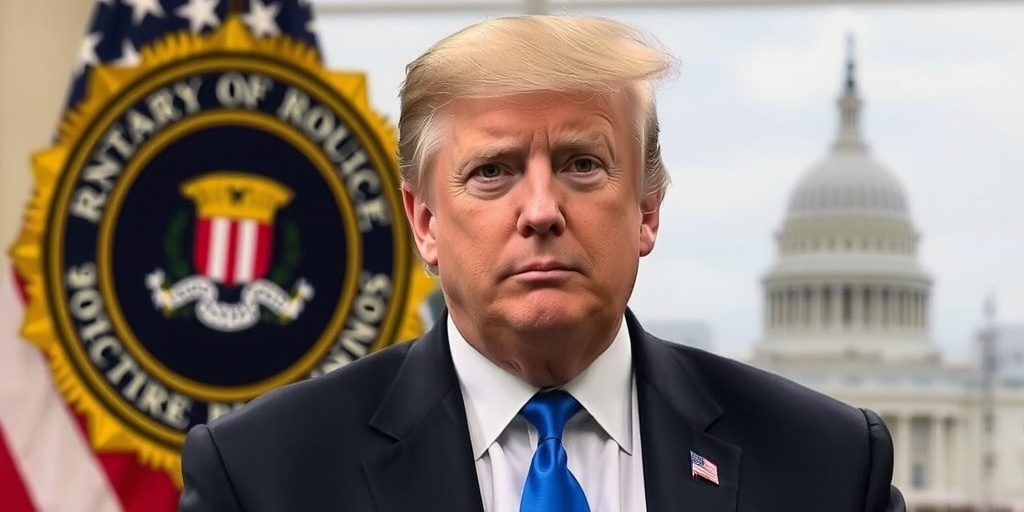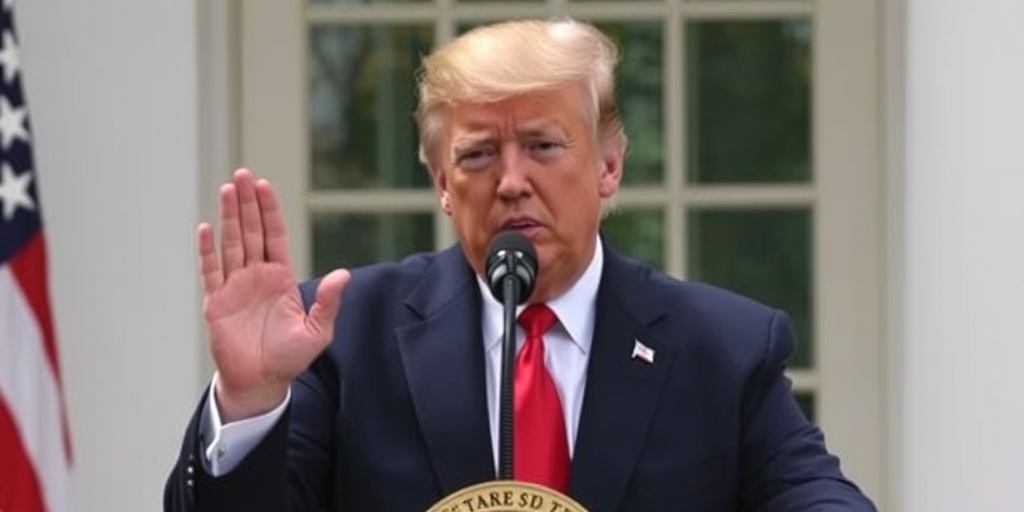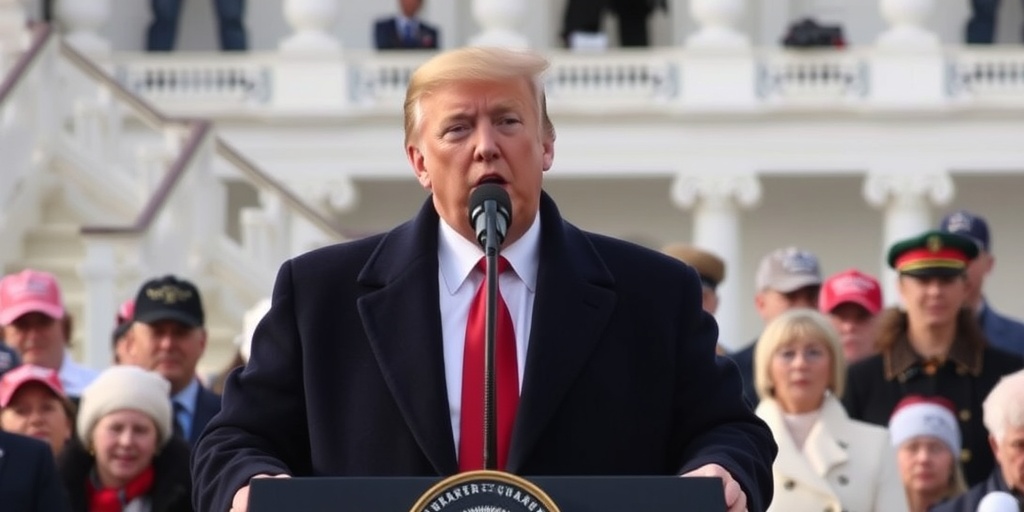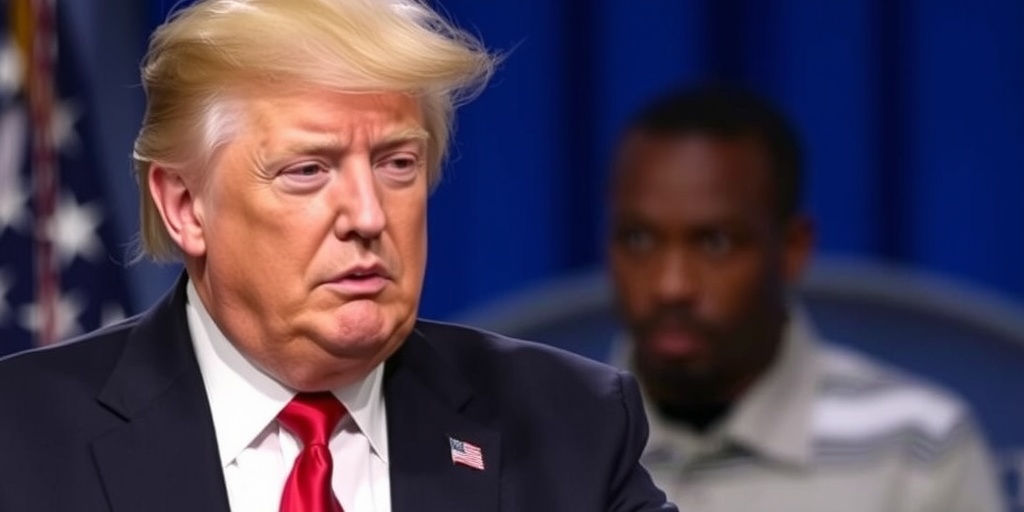Now Reading: Right-Wing Commentator Appointed FBI Deputy Director
-
01
Right-Wing Commentator Appointed FBI Deputy Director
Right-Wing Commentator Appointed FBI Deputy Director

Dan Bongino Appointed as Deputy Director of the FBI, Sparking Controversy
In a surprising announcement made on Sunday evening, President Trump revealed that Dan Bongino, a well-known right-wing commentator and former law enforcement officer, has been appointed as the next deputy director of the Federal Bureau of Investigation (FBI). This decision follows the recent confirmation of Kash Patel as the new FBI director, who chose Bongino for this critical position without the need for Senate approval. This move has generated significant concern regarding the independence and integrity of the FBI, given the background and qualifications of both Bongino and Patel.
Bongino, who has a history as a New York City police officer and a Secret Service agent, has transitioned to a career as a right-wing pundit and podcaster. His rise to prominence has been marked by controversial statements and a commitment to promoting narratives aligned with the far-right agenda. Many observers find this appointment a radical shift from the traditional practices of the FBI, which typically prioritizes experience and expertise in selecting its top officials.
Historically, the FBI has chosen senior agents with extensive backgrounds in law enforcement to oversee its operations. These roles demand a high level of familiarity with diverse investigations, cooperation with foreign entities, and management of sensitive information. However, the selection of Bongino, who has never served as an FBI agent, raises significant questions about the agency’s leadership structure and how it will navigate its vast surveillance and investigative powers under such inexperienced oversight.
The FBI Agents Association expressed discontent following the announcement, noting that Patel had previously acknowledged the importance of selecting an FBI agent for the deputy director role. The association’s leadership had emphasized the need for someone with direct experience in the field to fulfill this pivotal position. The lack of a seasoned law enforcement leader at the helm could lead to erosion of trust among rank-and-file agents, particularly during a time of upheaval within the bureau.
In recent months, the FBI has undergone significant changes as the Justice Department has replaced several senior executives, many of whom had served for decades. Their removal has contributed to a sense of uncertainty and concern among FBI personnel, especially given the political implications of their replacements. Interim leaders Brian Driscoll and Robert C. Kissane had gained respect within the bureau for their stances against perceived political interference, particularly in relation to investigations surrounding the January 6 Capitol attack. Their departure leaves many questioning the direction Patel and Bongino will take.
Despite the unease among agents, Bongino’s appointment signifies a shift towards a more partisan leadership, with both him and Patel being outspoken proponents of various conspiracy theories and falsehoods. This includes Bongino’s notorious claims regarding election fraud in 2020 and his dismissal of the effectiveness of COVID-19 masks. Such positions have often led Bongino to engage in “information warfare,” as described by former Fox News colleague Pete Hegseth. As a result, many fear that the credibility of the FBI may be compromised under their leadership.
The decision to bring Bongino into such a high-ranking position within the FBI underscores the increasing politicization of the agency, which has historically maintained a nonpartisan image. Critics argue that the duo’s ascent represents a new trend of eroding the FBI’s long-standing norms and its independent functioning. The implications of these changes could be far-reaching, affecting the bureau’s relationships with other law enforcement agencies, policymakers, and the public, particularly during critical investigations.
Bongino’s media career has included stints as a Fox News host, which he left earlier this year. His alignment with Trump and adoption of the rhetoric championed by the former president have garnered him a loyal following, but also considerable criticism for spreading misinformation. As he steps into this new role, questions loom over how Bongino and Patel will fare in managing the diverse operations of the FBI, particularly as they face scrutiny over their professional integrity.
As the FBI prepares for this new era of leadership, it remains to be seen how Bongino and Patel will navigate the complexities of the bureau’s responsibilities while contending with an increasingly polarized political landscape. The hope among many within the agency is that operational efficacy and public trust can be maintained amidst significant changes at the top. Only time will tell how history will judge this bold departure from tradition in the FBI’s history.
Stay Informed With the Latest & Most Important News
Previous Post
Next Post
-
 01New technology breakthrough has everyone talking right now
01New technology breakthrough has everyone talking right now -
 02Unbelievable life hack everyone needs to try today
02Unbelievable life hack everyone needs to try today -
 03Fascinating discovery found buried deep beneath the ocean
03Fascinating discovery found buried deep beneath the ocean -
 04Man invents genius device that solves everyday problems
04Man invents genius device that solves everyday problems -
 05Shocking discovery that changes what we know forever
05Shocking discovery that changes what we know forever -
 06Internet goes wild over celebrity’s unexpected fashion choice
06Internet goes wild over celebrity’s unexpected fashion choice -
 07Rare animal sighting stuns scientists and wildlife lovers
07Rare animal sighting stuns scientists and wildlife lovers





















